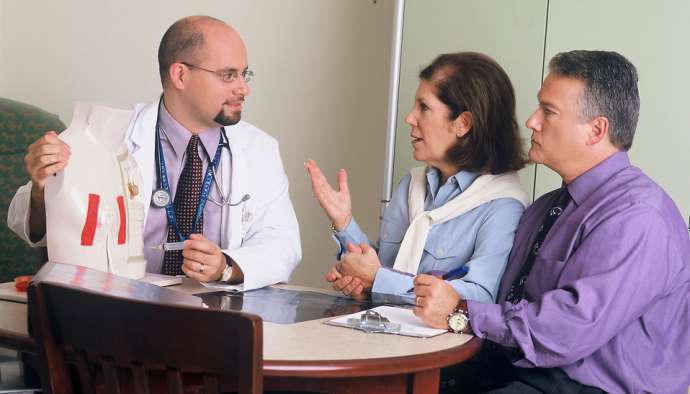STA, 6 February 2019 - A debate on problems in primary healthcare is heating up. Overburdened and understaffed, health community centres are looking for solutions but the one most recently proposed by the health minister has upset trade unions as well as nurses.
The problem of GPs being overburdened and underpaid has escalated to the point that in one health community centre, in Kranj, primary healthcare can no longer be provided to all residents.
Last week, the community centre notified citizens that GPs cannot accept new patients there and advised them to find their GP outside their city.
Responding to the situation there, Health Minister Samo Fakin proposed yesterday that GPs be paid according to the number of patients they have. "We already have this model in private healthcare and it's working," he said.
Although Fakin said trade unions had informally agreed with the proposal, the FIDES trade union of doctors and the Praktikum trade union of GPs rejected this.
Moreover, the minister upset nurses, who felt the minister ignored their problems completely, as well as the Association of Private Doctors and Dentists, who said that more patients always meant poorer quality of treatment.
Praktikum said that a new system of rewarding had been mentioned as a possible solution at one of the meetings with Fakin but "we told the minister this could be seen as an initiative to conduct work less professionally".
"No pay will reduce the burden on GPs. We will also propose to the minister to restrict the financing of work that exceeds professional standards," Praktikum said in a press release.
The trade union also proposes changes to the system of financing, cutting the red tape, and flexible hiring, especially in rural areas.
"We understand the minister is in a tough spot, being restricted by the political will in parliament and being unable to offer systemic solutions by himself. We need systemic measures to increase interest in family medicine and improve the chances of GPs staying in an area."
FIDES too called for honouring standards and norms with vice president Janusz Klim saying that the ministry, the ZZZS public health fund and health institutes had failed to take the necessary steps to implement the standards and norms from the 2017 strike-averting agreement.
Commenting on the situation at the Kranj community health centre, Fakin said that 51 students would finish their GP specialisation this year, just as many next year and another 31 in 2021. Half as many GPs will retire so that the gap should gradually close, he said.
The last resort will be to follow the example of other European countries and open the door to doctors from EU and third countries, he said. According to Fakin, the ministry is also working on changes to the management of public health institutions act.
But FIDES and Pratikum believe that the situation will further deteriorate with the natural retirement of doctors. "With every specialist that leaves, we have 1,500 patients left without quality care."
This causes burnout among doctors in primary healthcare, which prompts doctors to leave their job and discourages young doctors from becoming GPs.
The trade unions therefore expect decisive measures from the government.
The opposition New Slovenia (NSi) has already called for an urgent session of the parliamentary Health Committee, where it also expects concrete solutions.
"Unless the government and the health minister tackle the situation soon, the whole system of primary healthcare could collapse in a few years," the NSi said, noting this would be the biggest problem in Slovenia's history.







